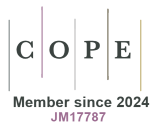Refractory CMV infection in post-transplant phase: epidemiological framing in the Italian context, current patient management and unmet needs
DOI:
https://doi.org/10.33393/ao.2023.2564Keywords:
Cytomegalovirus infection, Epidemiology, Hematopoietic stem cell transplantation, Patient management, Solid organ transplantation, Unmet needsAbstract
Background: Cytomegalovirus (CMV) infection usually occurs asymptomatically but can represent an important cause of morbidity and mortality in patients with compromised immune system such as transplant patients. Infection may not respond to standard therapies leading to refractoriness (with or without resistance) which jeopardizes transplant successful outcome.
Objective: Since refractoriness represents a critical point, a project has been conducted to verify the epidemiology in the Italian context and to convey the current patients’ unmet medical needs.
Methods: The project included: literature analysis, expert interviews and results’ validation through expert opinion. Based on literature data, a questionnaire was built and submitted to 8 experts with proven experience in the management of post-transplant CMV infection. Topics included epidemiology, patient management, unmet needs and future perspective. Outcomes were validated by 3 additional national experts in solid organ transplantation, hematopoietic stem cell transplantation and infectious diseases.
Results: Epidemiological rates from literature applied to current transplantation numbers in Italy estimate approximately 109 adults and 8 children with refractory post-transplant CMV infection in 2021.
If valganciclovir/ganciclovir are ineffective, foscarnet is predominantly used. When foscarnet fails, patients have no therapeutic alternatives. Despite being a minority, this represents a high medical need. Therefore, the introduction of new therapeutic options with a better efficacy/safety profile would lead to a significant improvement in refractory CMV infection management.
Conclusion: Although refractory infections represent a minority, they are the most critical issue that can occur in post-transplant patients resulting in a high unmet need due to the lack of specific treatment options and the toxicity of current treatments used.
References
- Griffiths P, Reeves M. Pathogenesis of human cytomegalovirus in the immunocompromised host. Nat Rev Microbiol. 2021;19(12):759-773. https://doi.org/10.1038/s41579-021-00582-z PMID:34168328 DOI: https://doi.org/10.1038/s41579-021-00582-z
- Crough T, Khanna R. Immunobiology of human cytomegalovirus: from bench to bedside. Clin Microbiol Rev. 2009;22(1):76-98. Table of Contents. https://doi.org/10.1128/CMR.00034-08 PMID:19136435 DOI: https://doi.org/10.1128/CMR.00034-08
- Zuhair M, Smit GSA, Wallis G, et al. Estimation of the worldwide seroprevalence of cytomegalovirus: A systematic review and meta-analysis. Rev Med Virol. 2019;29(3):e2034. https://doi.org/10.1002/rmv.2034 PMID:30706584 DOI: https://doi.org/10.1002/rmv.2034
- Cicchetti A, Giorgio L, Basile M, et al. Analisi del percorso ottimale nella gestione dei pazienti post allo-HSCT a rischio di ri-attivazione del citomegalovirus. Quaderni dell’. Ital J Public Health. 2021;10:3-38
- Istituto Superiore di Sanità. EpiCentro – L’epidemiologia per la salute pubblica. Citomegalovirus. Online: https://www.epicentro.iss.it/citomegalovirus/ (accessed January 2023).
- Meesing A, Razonable RR. New Developments in the Management of Cytomegalovirus Infection After Transplantation. Drugs. 2018;78(11):1085-1103. https://doi.org/10.1007/s40265-018-0943-1 PMID:29961185 DOI: https://doi.org/10.1007/s40265-018-0943-1
- Boutolleau D, Coutance G, Désiré E, et al. Association between cytomegalovirus infection and allograft rejection in a large contemporary cohort of heart transplant recipients. Transpl Infect Dis. 2021;23(4):e13569. https://doi.org/10.1111/tid.13569 PMID:33452851 DOI: https://doi.org/10.1111/tid.13569
- Chemaly RF, Chou S, Einsele H, et al; Resistant Definitions Working Group of the Cytomegalovirus Drug Development Forum. Definitions of Resistant and Refractory Cytomegalovirus Infection and Disease in Transplant Recipients for Use in Clinical Trials. Clin Infect Dis. 2019;68(8):1420-1426. https://doi.org/10.1093/cid/ciy696 PMID:30137245 DOI: https://doi.org/10.1093/cid/ciy696
- Girmenia C, Lazzarotto T, Bonifazi F, et al. Assessment and prevention of cytomegalovirus infection in allogeneic hematopoietic stem cell transplant and in solid organ transplant: A multidisciplinary consensus conference by the Italian GITMO, SITO, and AMCLI societies. Clin Transplant. 2019;33(10):e13666. https://doi.org/10.1111/ctr.13666 PMID:31310687 DOI: https://doi.org/10.1111/ctr.13666
- Owers DS, Webster AC, Strippoli GF, Kable K, Hodson EM. Pre-emptive treatment for cytomegalovirus viraemia to prevent cytomegalovirus disease in solid organ transplant recipients. Cochrane Database Syst Rev. 2013;2013(2):CD005133. https://doi.org/10.1002/14651858.CD005133.pub3 PMID:23450558 DOI: https://doi.org/10.1002/14651858.CD005133.pub3
- Haidar G, Boeckh M, Singh N. Cytomegalovirus Infection in Solid Organ and Hematopoietic Cell Transplantation: state of the Evidence. J Infect Dis. 2020;221(suppl 1):S23-S31. https://doi.org/10.1093/infdis/jiz454 PMID:32134486 DOI: https://doi.org/10.1093/infdis/jiz454
- Centro Nazionale Trapianti. Report attività annuale rete nazionale trapianti. 2021. https://www.trapianti.salute.gov.it/imgs/C_17_cntPubblicazioni_506_allegato.pdf. (Accessed January 2023)
- Gruppo Italiano per il Trapianto di Midollo Osseo, cellule staminali emopoietiche e terapia cellulare. Transplant Data. 2021 Data, https://www.gitmo.it/storage/gitmo/article/pdf/123/743-GITMO%20Book_final%20version%209%20May%202022[1].pdf.
- Girmenia C, Raiola AM, Piciocchi A, et al. Incidence and outcome of invasive fungal diseases after allogeneic stem cell transplantation: a prospective study of the Gruppo Italiano Trapianto Midollo Osseo (GITMO). Biol Blood Marrow Transplant. 2014;20(6):872-880. https://doi.org/10.1016/j.bbmt.2014.03.004 PMID:24631738 DOI: https://doi.org/10.1016/j.bbmt.2014.02.018
- Grossi PA, Baldanti F, Andreoni M, Perno CF. CMV infection management in transplant patients in Italy. J Clin Virol. 2020;123:104211. https://doi.org/10.1016/j.jcv.2019.104211 PMID:31879243 DOI: https://doi.org/10.1016/j.jcv.2019.104211
- Martino M, Pitino A, Gori M, et al. Letermovir Prophylaxis for Cytomegalovirus Infection in Allogeneic Stem Cell Transplantation: A Real-World Experience. Front Oncol. 2021;11:740079. https://doi.org/10.3389/fonc.2021.740079 PMID:34616684 DOI: https://doi.org/10.3389/fonc.2021.740079
- Ministero della Salute. Sistema Informativo Trapianti. Online https://trapianti.sanita.it/statistiche/trapianti_per_anno.aspx (Accessed January 2023)
- Chitasombat MN, Watcharananan SP. Burden of cytomegalovirus reactivation post kidney transplant with antithymocyte globulin use in Thailand: A retrospective cohort study. F1000 Res. 2018;7:1568. https://doi.org/10.12688/f1000research.16321.1 PMID:30473779 DOI: https://doi.org/10.12688/f1000research.16321.1









